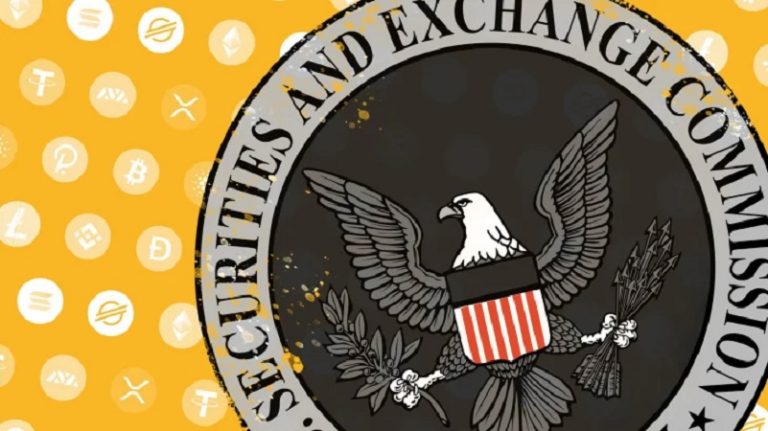
In a landmark decision, the US Court of Appeals for the District of Columbia Circuit has ruled that the Securities and Exchange Commission (SEC) acted arbitrarily and capriciously in denying the application of Grayscale Investments to launch a Bitcoin exchange-traded fund (ETF).
The ruling, issued on August 29, 2023, overturns the SEC’s order from March 2023, which rejected Grayscale’s proposal on the grounds that the Bitcoin market was too volatile, manipulative, and prone to fraud. The SEC also argued that Grayscale failed to demonstrate that its ETF would comply with the federal securities laws and protect investors.
However, the court found that the SEC’s analysis was flawed and unsupported by evidence. The court noted that the SEC did not adequately consider the benefits of a Bitcoin ETF, such as providing investors with exposure to a new asset class, enhancing liquidity and price discovery, and reducing counterparty risk. The court also pointed out that the SEC did not address how its concerns about the Bitcoin market could be mitigated by Grayscale’s proposed safeguards, such as using multiple custodians, tracking the net asset value of the ETF, and adhering to strict reporting and auditing standards.
Register for Tekedia Mini-MBA edition 19 (Feb 9 – May 2, 2026): big discounts for early bird.
Tekedia AI in Business Masterclass opens registrations.
Join Tekedia Capital Syndicate and co-invest in great global startups.
Register for Tekedia AI Lab: From Technical Design to Deployment (next edition begins Jan 24 2026).
The court concluded that the SEC’s decision was arbitrary and capricious, and violated the Administrative Procedure Act, which requires federal agencies to provide a reasoned explanation for their actions. The court remanded the case to the SEC and instructed it to reconsider Grayscale’s application in light of the court’s opinion.
The ruling is a major victory for Grayscale and the Bitcoin industry, as it might pave the way for the first Spot Bitcoin ETF in the US. A Bitcoin ETF would allow investors to buy and sell shares of a fund that tracks the price of Bitcoin, without having to deal with the technical challenges of buying, storing, and securing the cryptocurrency. A Bitcoin ETF would also increase the legitimacy and mainstream adoption of Bitcoin, as it would attract more institutional and retail investors to the market.
Grayscale is not the only company that has been seeking to launch a Bitcoin ETF in the US. Several other firms, such as VanEck, WisdomTree, Blackrock and Valkyrie, have also filed applications with the SEC, but have faced similar rejections or delays. The court’s ruling could have positive implications for these other applicants, as it sets a precedent for challenging the SEC’s authority and reasoning on this matter.
The SEC has not yet commented on the ruling or indicated whether it will appeal to the Supreme Court. However, some experts believe that the SEC may be more inclined to approve a Bitcoin ETF under its new chair, Gary Gensler, who has expressed a more nuanced and favorable view of cryptocurrencies than his predecessor, Jay Clayton. Gensler, who took office in April 2021, has also signaled that he wants to update and modernize the SEC’s regulatory framework for digital assets.
The court’s ruling is expected to have a significant impact on the Bitcoin market, as it could boost the demand and price of the cryptocurrency. According to some analysts, a Bitcoin ETF could attract billions of dollars in inflows from investors who are looking for an easy and regulated way to access the digital asset. At the time of writing, Bitcoin is trading at around $26,155 USD per coin, up about 2.7% since the ruling was announced.
However, not everyone is happy with the SEC’s decision. Some of Grayscale’s competitors, such as VanEck, Valkyrie, and WisdomTree, have also filed for Bitcoin ETFs, but have not received any response from the SEC. They argue that Grayscale’s product is not a true ETF, but rather a conversion of its existing trust, and that it does not meet the standards of diversification, liquidity, and valuation that are required for an ETF.
Moreover, some crypto enthusiasts believe that a Bitcoin ETF is unnecessary and even harmful for the industry, as it would centralize the ownership and custody of Bitcoin and expose it to more regulatory scrutiny and manipulation. They prefer to buy and hold Bitcoin directly, or through decentralized platforms that offer more autonomy and innovation.
The debate over Bitcoin ETFs is likely to continue, as more players enter the market, and more countries adopt different approaches. For example, Canada and Brazil have already approved several Bitcoin ETFs, while China has banned all crypto-related activities. The US market, however, remains the most influential and sought-after one, and Grayscale’s win could have significant implications for the future of Bitcoin and crypto.



